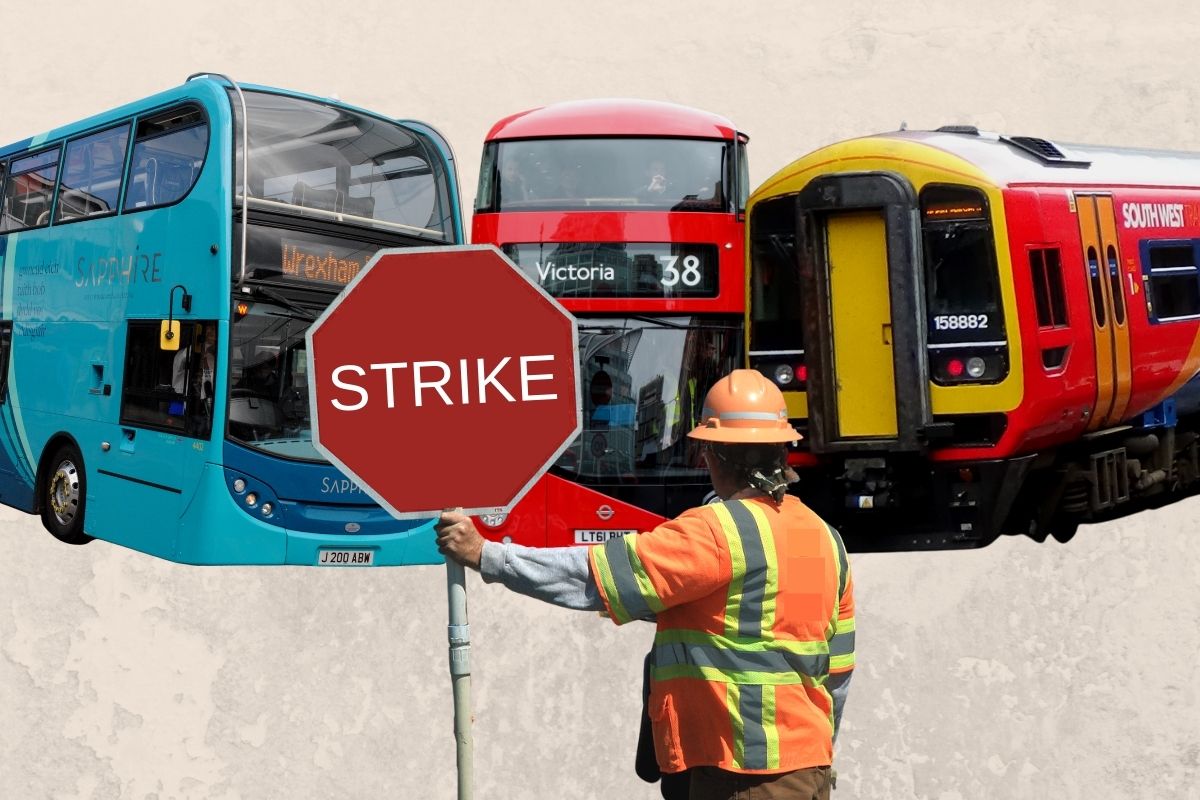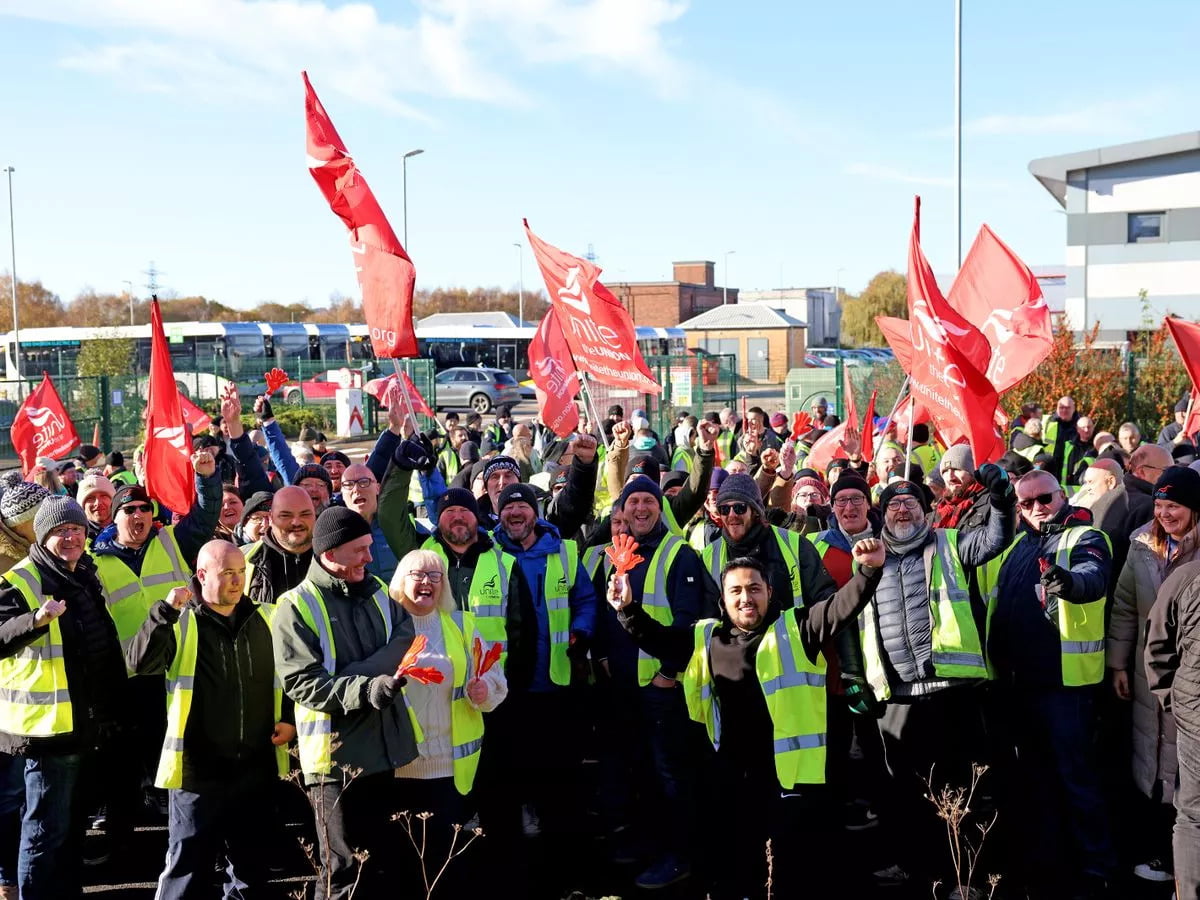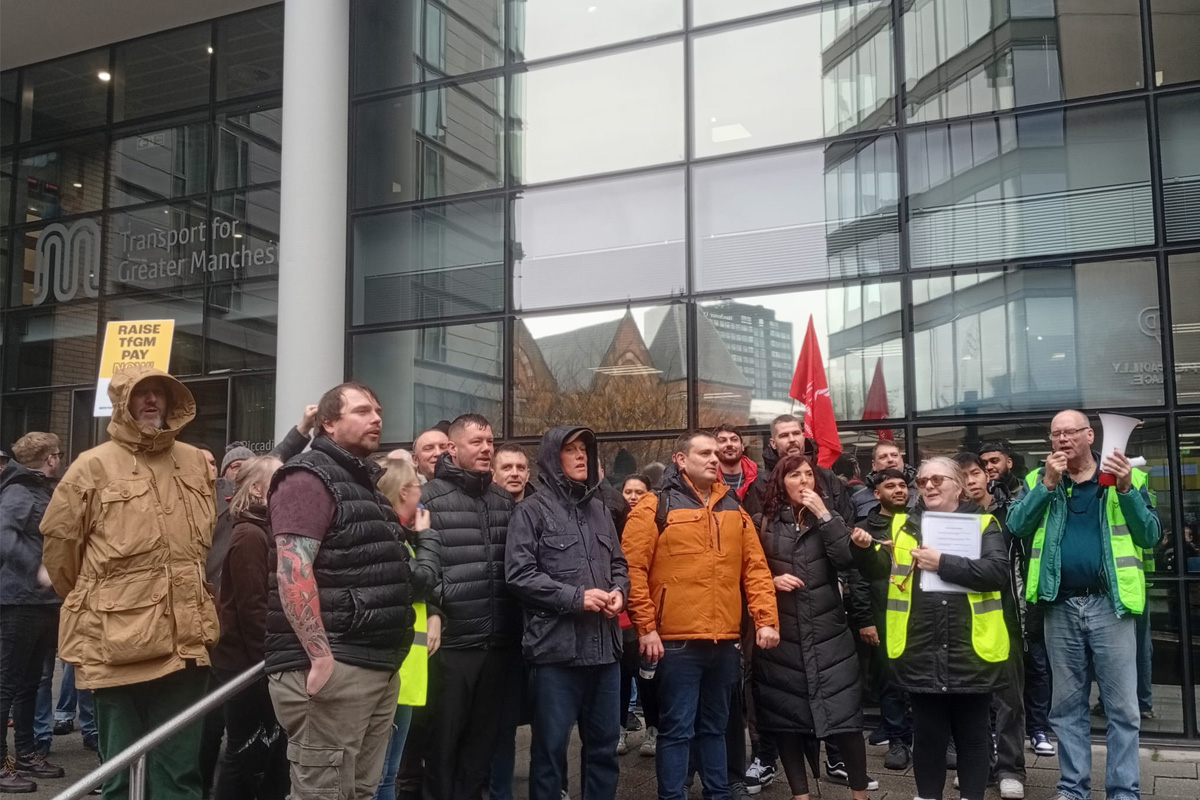On 1 December, 1,400 bus drivers organised in Unite the Union won their long-running dispute with Go North East (GNE).
GNE drivers were being paid an average of £12.83 per hour. This compares to an average hourly rate of £15.53 for staff employed on the north-west subsidiary of the Go-Ahead Group.
Thanks to indefinite strike action, which began on 28 October, following two previous rounds of week-long walkouts, Unite negotiated and recommended an improved deal with GNE.
This includes: a pay rise of 11.2%, partially backdated to 1 July this year; an additional inflation-linked pay rise in July next year, with a minimum 4% increase; and no changes to terms and conditions.
The lesson is clear: militancy pays.
Huge impact
This action brought local transport to a standstill, as GNE have an effective monopoly in much of the North East. All but a few routes and services were affected by the strike.
This has placed huge pressure on the company, which has been forced to compensate passengers by offering a week’s free travel on its buses.
The dispute is unprecedented in recent times – the first all-out strike of GNE bus drivers for years. In particular, its militancy reflects the fresh layer of radical young workers coming forward in many workplaces.

Drivers voted twice to reject other proposed deals; they blocked the roads outside of depots; and they even met with trade unionists in Canada to lobby a firm with controlling shares in the Go-Ahead Group. Before the latest offer, the strike was expected to last until April.
Dire conditions
Despicably, the bosses were threatening to take away paid breaks, and were considering introducing longer shifts to ‘make up’ for a previously-negotiated pay rise.
“It isn’t purely about money,” said one driver, interviewed by Socialist Appeal comrades. He painted a bleak picture of the deep crisis at every level of society, with workers at the sharp end.
“The amount of traffic; abuse and assaults are up; anti-social behaviour has never been as bad as it is: and we are still expected to come in and smile the next day!”
He also pointed to the state of the fleet, composed of dilapidated older buses and faulty newer ones. The only people benefiting from this are the shareholders!
Where next?
Notably, of the 1,407 votes returned in the recent ballot over the deal (on a 99.9% turnout), only 749 were in favour of acceptance. 658 were for rejection. Clearly many drivers are still prepared to fight for further gains.
And they will need to. After decades of privatisation and austerity, public transport continues to suffer from a number of other issues. And the new hourly rate still falls short of the level that Go North West drivers are paid.
There will be future battles on the horizon. But the confidence gained from this strike will put Go North East workers in good stead to win – and, ultimately, to run the service themselves when workers take control.






